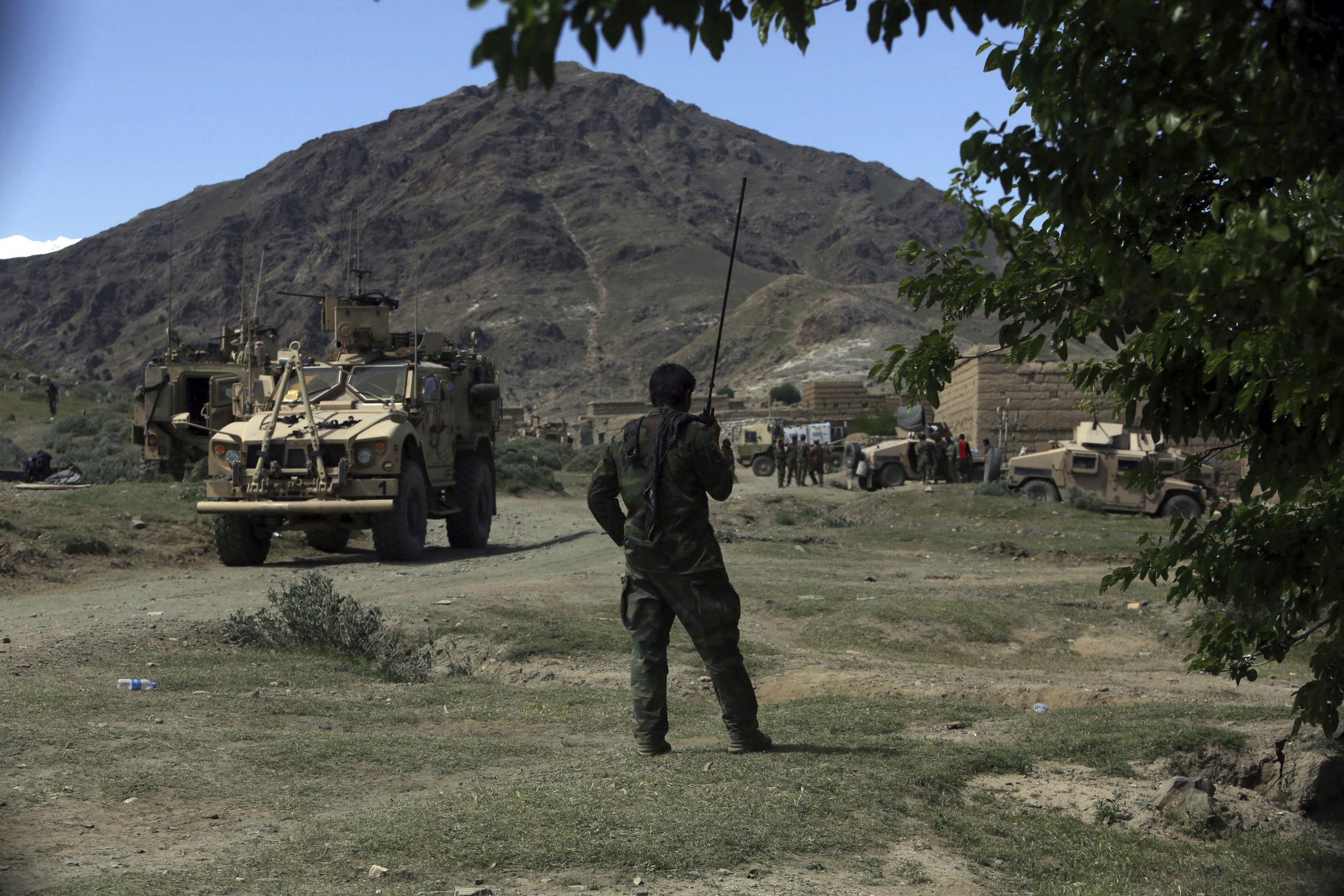Isis commander in Afghanistan killed by special forces, US and Afghan officials say
'This successful joint operation is another important step in our relentless campaign to defeat' the Afghan-wing of Isis, says US general

Your support helps us to tell the story
From reproductive rights to climate change to Big Tech, The Independent is on the ground when the story is developing. Whether it's investigating the financials of Elon Musk's pro-Trump PAC or producing our latest documentary, 'The A Word', which shines a light on the American women fighting for reproductive rights, we know how important it is to parse out the facts from the messaging.
At such a critical moment in US history, we need reporters on the ground. Your donation allows us to keep sending journalists to speak to both sides of the story.
The Independent is trusted by Americans across the entire political spectrum. And unlike many other quality news outlets, we choose not to lock Americans out of our reporting and analysis with paywalls. We believe quality journalism should be available to everyone, paid for by those who can afford it.
Your support makes all the difference.The head of Isis in Afghanistan, Abdul Hasib, was killed in an operation conducted by Afghan and US Special Forces in the eastern province of Nangarhar last month, American and Afghan officials have revealed.
Hasib, appointed last year after his predecessor Hafiz Saeed Khan died in a US drone strike, is believed to have ordered a series of high-profile attacks including one on 8 March on the main military hospital in Kabul, a statement said.
Last month, a Pentagon spokesman said Hasib had probably been killed during the raid by US and Afghan special forces in Nangarhar during which two US army Rangers were killed, but this had not been confirmed at that time.
"This successful joint operation is another important step in our relentless campaign to defeat Isis-K in 2017," the top US commander in Afghanistan, General John Nicholson, said in a statement.
The statement, following an earlier announcement by Afghan President Ashraf Ghani, said Hasib directed the March attack on the main Kabul military hospital by a group of militants disguised as doctors. Dozens of medical staff and patients were killed in the attack.
It said he also ordered fighters to behead local elders in front of their families and kidnap women and girls to force them to marry Isis fighters.
The local affiliate of Isis, sometimes known as Islamic State Khorasan (Isis-K), after an old name for the region that includes Afghanistan, has been active since 2015, fighting both the Taliban as well as Afghan and US forces.
It is believed to maintain links with the main Isis movement in Iraq and Syria but has considerable operational independence.
US and Afghan special forces, backed by drone strikes and other air support, have waged a series of operations against Isis-K since March, killing dozens of their fighters, mainly in Nangarhar, on the border with Pakistan.
Defeating the group remains one of the top US priorities in Afghanistan and last month the United States dropped its largest non-nuclear device on a network of caves and tunnels used by Isis in Nangarhar, killing 94 fighters, including four commanders.
The US military statement said 35 Islamic State fighters and several high ranking commanders were killed in the 27 April raid.
Hundreds of fighters had been killed or captured this year and the offensive was continuing, with over half the districts controlled by Isis-K retaken, allowing residents in some places to return for the first time in two years.
Reuters
Join our commenting forum
Join thought-provoking conversations, follow other Independent readers and see their replies
Comments